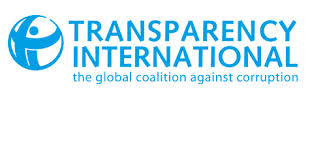Location
Corruption Watch is a non-profit organisation launched in January 2012. We rely on the public to report corruption to us. We use the reports as an important source of information to fight corruption and hold leaders accountable for their actions.
Corruption Watch provides a platform for reporting corruption. Anyone can safely share what they experience and observe and can speak out against corruption. Our communication channels include our website, an SMS line, social media, email or post.
We investigate selected reports of alleged acts of corruption, in particular those cases that have the most serious impact on our society. For instance, these may be cases involving basic health or education services which affect the most disadvantaged South Africans. We hand our findings over to the relevant authorities to take further action, and we monitor the progress of each case. We work with mainstream and community media to make sure that corruption is fully exposed through our investigative work.
We gather and analyse information to identify patterns and hot spots of corruption. We prepare research reports on these hot spots to expose and find solutions to systemic corruption. Using our own communication platforms and the media, we share our findings with the public, like-minded non-governmental organisations and public sector bodies, all of which are undermined by corruption.
We build campaigns that mobilise people to take a stand against corruption. Our campaigns involve the public, community groups and other organisations such as trade unions.
Communication
Investigation
Research
Mobilisation
Members:
Resources
Displaying 1 - 1 of 1Improving transparency and accountability in the flow of benefits to mining communities
This report seeks to investigate and propose mechanisms that can be used to improve the flow of benefits to mining-affected communities. The report sets out what requirements should be met for a community trust (or similar legal vehicle) to offer protection of trust assets. It sets out recommendations on the manner in which the legal document should be crafted to protect communities, and proposes that the time is ripe for regulation and clarity. Although it is focused on South Africa, it will be relevant for countries facing similar challenges in the mining and other commercial sectors.

